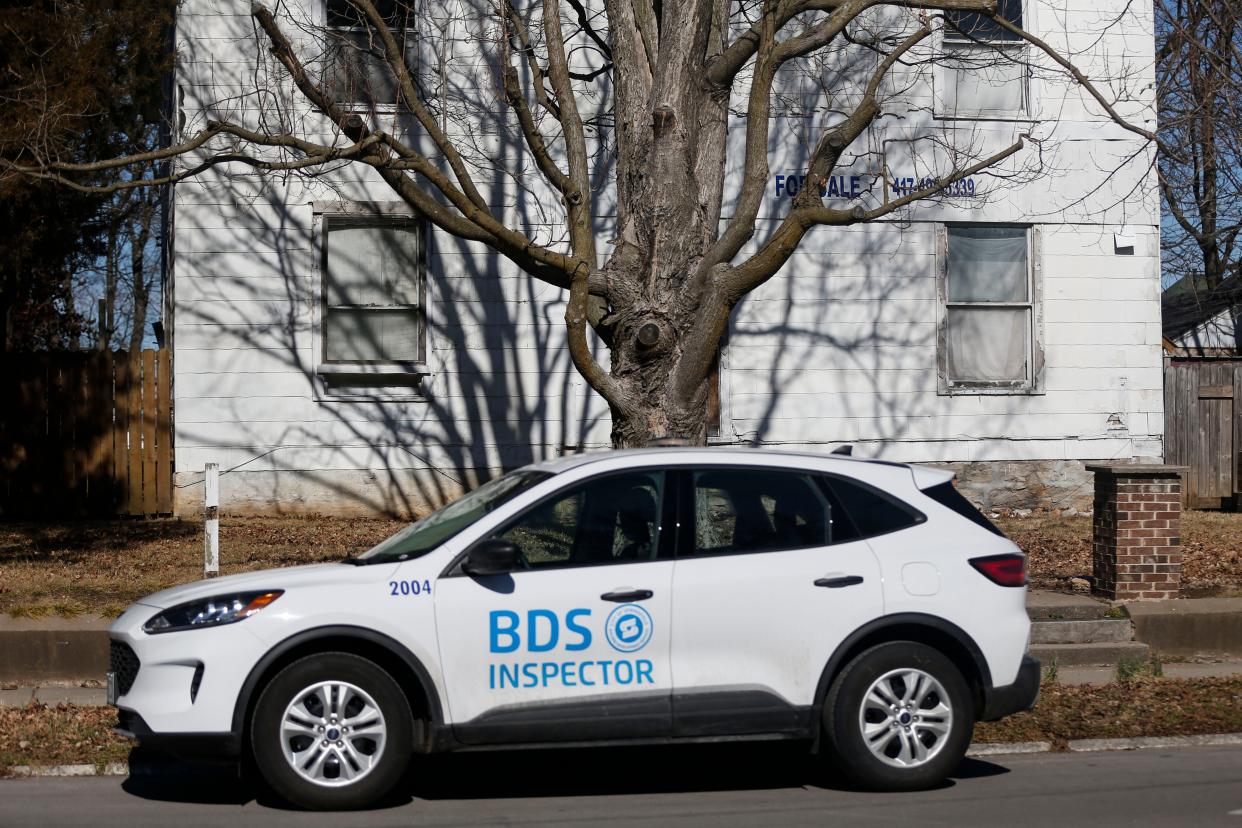How should Springfield address run-down, abandoned houses? Report recommends solutions

Run-down, neglected properties often cause problems for nearby homeowners, prompting neighbors to come to City Council looking for solutions. A working group of local organizations and residents have developed a report with recommendations on how the city can tackle the issue.
A joint project of the Neighborhood Advisory Council and Community Partnership of the Ozarks, the working group was made up of 33 individuals from those organizations as well as the city and private sector. The report recommends City Council takes up an entire overhaul of the city's nuisance property abatement system.
"We can't expect substantial improvement if we continue to do what we have been doing. These issues are a product of decades of low wages, lack of educational attainment, crime, and other deeply rooted challenges for Springfield and southwest Missouri," reads the report.
More: West Central Springfield neighborhood battle illuminates city’s nuisance property struggles
Recommendations made by the working group add up to a $665,000 one-time expense and a $125,000 annual increase in city expenses.
According to the report, there were 17,803 nuisance-related code enforcement cases from 2015 to 2021 with an average of 3,000 per year. The report also suggests the true number of nuisance violations could be much higher because violations are often not reported.
"Lack of confidence among citizens that a complaint will be addressed effectively and in a timely fashion erodes the likelihood that complain calls are made."
The vast majority of violations — 71% — occur at rental properties.
More resources and updated code are needed to address the problem, the report states.
"We suggest the solution will require an enforcement staff of sufficient size to meet the violations head on, and resources devoted to addressing not just the symptoms, but also root causes: disinvestment, poverty, crime, and neighborhood betterment. It is difficult politically to make the tough choices to invest sufficiently to arrest the problem," it says.
The report requests the city manager hire a new staff position focused specifically on residential nuisance properties. It also asks that an evaluation of the nuisance property system be conducted internally by the city manager's office or by a third-party contractor.
The groups also hope neighborhoods could become more active in nuisance abatement — allowing registered neighborhoods to be "alternative to contractors for mowing of overgrown lots for out-of-town owners, the elderly and disabled."
More: City council tells repeat nuisance offenders to clean up their property, talks harsher penalties
The report also recommends the extension of boarding requirements for vacant properties that have been broken into.
"We suggest the adopted city-wide code be structured to facilitate rapid boarding, includ(ing) a provision that the property owner be responsible for maintaining the integrity of the boarding, and that a permit be required with an escalating fee schedule to encourage boarding to be seen and used as a temporary measure."
The report recommends city code be amended to "empower code officials with the ability to judge whether a property's appearance is reasonably consistent with the expectations within a given neighborhood."
They also suggest the city's rental registration program be replaced with a rental inspection program. According to the work group, the registration program has not been enforced adequately and an inspection program would allow the city to be more proactive.
"The city could utilize the findings from the site visits to implement a new rental inspection program over the next 12-24 months that focuses on life safety and accountability …" reads the report. "To develop a framework for inspections that would be affordable for tenants, not penalize responsible property owners, and lift the floor for housing standards across Springfield."
In an email response to the working group co-leads, City Manager Jason Gage suggested they present their findings to City Council in the near future. He added that his staff will "need to dive into significant detail regarding legal, cost and logistics before finalizing our thoughts on each of the recommendations."
Gage did express a concern that some recommendations could create a need to rehouse "those hundreds to thousands of individuals that could be displaced into homelessness by the recommended rental housing inspection program when we determine their residence is unfit for human habitation."
"I do feel strongly that we cannot increase our homeless population due to a rental housing inspection program and must have a formal community approach in place if the City Council should desire to implement it," Gage wrote.
This article originally appeared on Springfield News-Leader: Springfield council to consider chronic nuisance code overhaul

